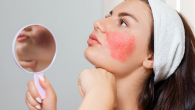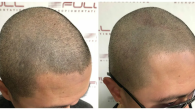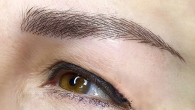
Unlocking the Secret: Vitamins for Dark Circles and Brighter Eyes
Peering into the mirror only to be greeted by the unwelcome sight of dark under-eye circles can be a disheartening experience. While lack of sleep and genetics often play a role, the secret to diminishing these shadows may reside within the realm of nutrition. Particular vitamins have proven to be exceptionally potent for promoting under-eye skin health and brightness. This article will explore the essential vitamins that serve as allies in the battle against dark under-eye circles, providing a beacon of hope for those seeking a fresh and vibrant appearance.
Understanding Dark Circles and Their Impact on Your Appearance

Dark circles under the eyes are often the result of several factors including genetics, aging, lifestyle habits, and medical conditions. These shadows cast across the skin are frequently due to an accumulation of melanin or an increased visibility of blood vessels beneath the thin under-eye skin. The impact extends beyond aesthetics; dark circles can also contribute to a perception of fatigue and age, affecting self-image and confidence. Tackling them requires a multi-faceted approach, where the inclusion of specific vitamins can be markedly effective.
The Vitamin Heroes for Dark Eye Circles

Vitamin K: The Blood Circulation Booster
Vitamin K plays a pivotal role in supporting blood clotting and may help improve blood circulation, minimizing the dark appearance under the eyes. A deficiency in this vitamin can lead to more pronounced blood vessels and shadows. Incorporating foods such as leafy greens, fish, and meat into your diet can elevate your Vitamin K intake. For a targeted approach, Vitamin K eye creams can be applied topically to assist in fading dark circles.
Vitamin C: Brightening and Collagen Production Master
The antioxidant nature of Vitamin C is fundamental for skin health. By promoting collagen production and mitigating skin damage caused by the sun and environment, Vitamin C can help reduce the darkness under the eyes. Citrus fruits, strawberries, and bell peppers are potent sources for this vitamin, while serums and creams serve as topical supplementations that can aid in invigorating the under-eye area.
Vitamin E: The Protective Moisturizer
Vitamin E is renowned for its moisturizing and healing properties, offering a shield against harmful UV radiation and environmental stressors. This protection is vital for the delicate skin under the eyes, which can be easily damaged and inflamed, exacerbating dark circles. Nuts, seeds, and green leafy vegetables are excellent dietary sources, and eye creams enriched with Vitamin E can provide direct benefits to the under-eye skin.
Combining Topicals with a Healthy Diet for Best Results
Treating dark circles effectively requires an integrated approach that includes internal and external nourishment. It’s crucial to maintain a balanced, vitamin-rich diet to support skin health from within while utilizing targeted cosmetic formulations to address concerns externally. This synergy between diet and skincare maximizes the potential for results, offering an effective strategy in reducing the appearance of dark circles.
- Balance your diet with a variety of fresh fruits and vegetables, lean proteins, and whole grains.
- Choose eye creams that are rich in vitamins K, C, and E, applying them as directed.
Other Beneficial Nutrients and Habits
In addition to vitamins, proper hydration and adequate sleep are crucial for maintaining vibrant eyes. Keeping the body well-hydrated helps the skin retain moisture and elasticity, while sufficient rest is necessary for healing and rejuvenation. Iron, a mineral that supports healthy blood flow, and omega-3 fatty acids, which fight inflammation, also contribute to reducing the appearance of dark circles and should be considered in a comprehensive care plan.
| Nutrient | Benefit | Dietary Sources |
|---|---|---|
| Iron | Supports blood health | Red meat, spinach, legumes |
| Omega-3 Fatty Acids | Reduces inflammation | Fish, flax seeds, walnuts |
Clinical Treatments and Skincare Tips
For individuals with persistent dark circles, professional treatments such as laser therapy and injectable fillers may offer solutions beyond dietary and topical treatments. These procedures can reduce pigmentation and improve the overall appearance under the eyes. However, daily skincare practices such as gentle cleansing, proper moisturization, and the use of sun protection are equally influential in the care and prevention of dark under-eye circles.
Conclusion
To summarize, essential vitamins such as K, C, and E can play a significant role in diminishing dark under-eye circles. A balanced approach that combines topical treatments with a nutrient-dense diet and healthy lifestyle choices stands as the most prudent strategy for combatting these shadows. By embracing this holistic view, you can work towards restoring brightness and vitality to your eyes, stepping away from the mirror with new-found confidence.
FAQs
- Q1: How long does it take for vitamins to reduce dark circles?
- A1: Some individuals may notice improvements within a few weeks, while others may see gradual changes over a few months.
- Q2: Can I just apply creams with these vitamins or do I need to consume them as well?
- A2: Combining both methods will likely produce the best results.
- Q3: Are vitamin supplements as effective as getting vitamins from food for treating dark circles?
- A3: Food sources are generally the preferred method, but supplements can also be effective for those with dietary restrictions or deficiencies.
- Q4: Will taking more than the recommended dose of vitamins help eliminate dark circles faster?
- A4: Taking more than the recommended dose is not advised and can be harmful. Consult a healthcare provider before changing your vitamin intake.
- Q5: Are there any side effects to using vitamin-rich products around the eyes?
- A5: If irritation occurs, discontinue use and consult a dermatologist.







